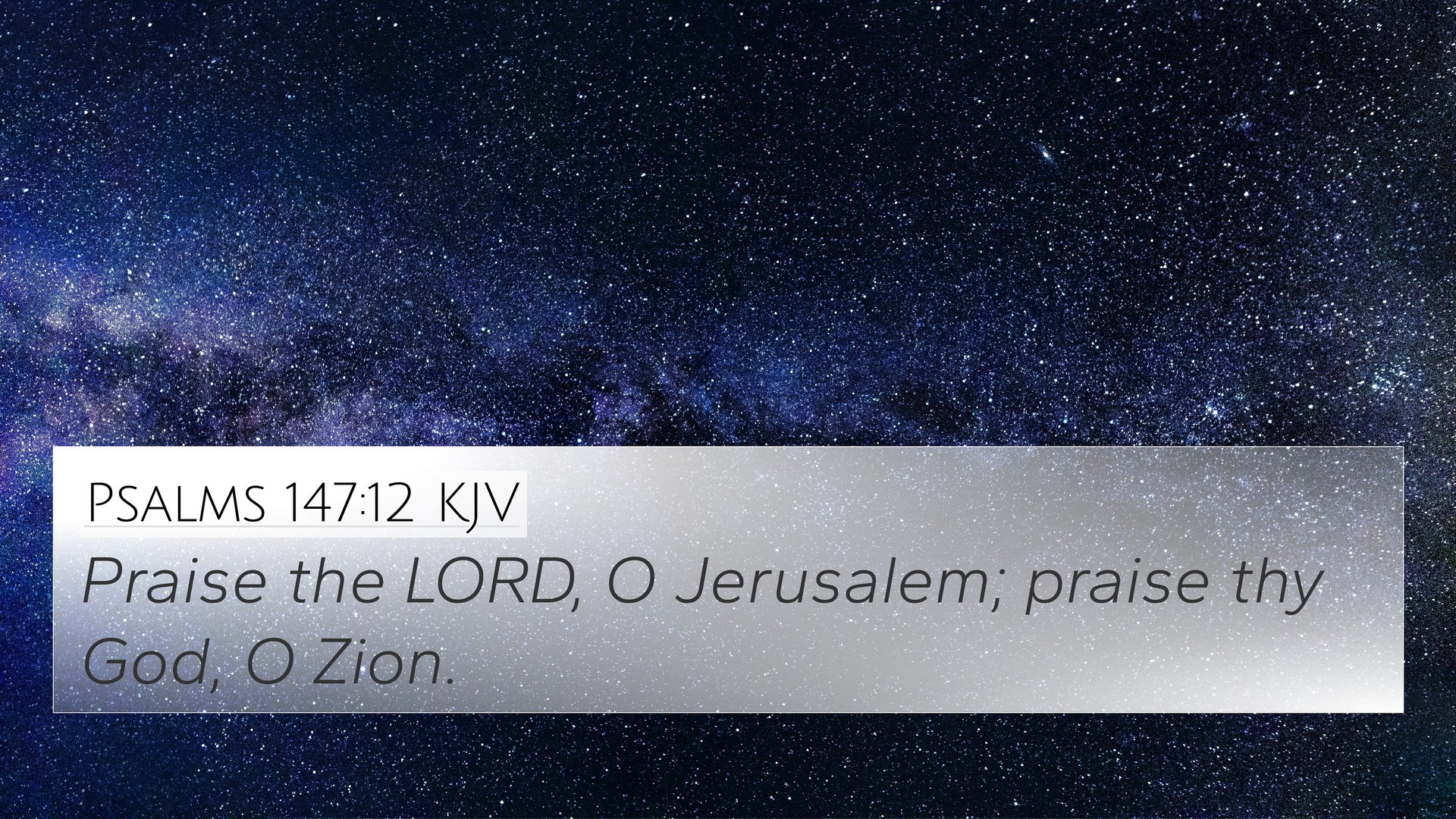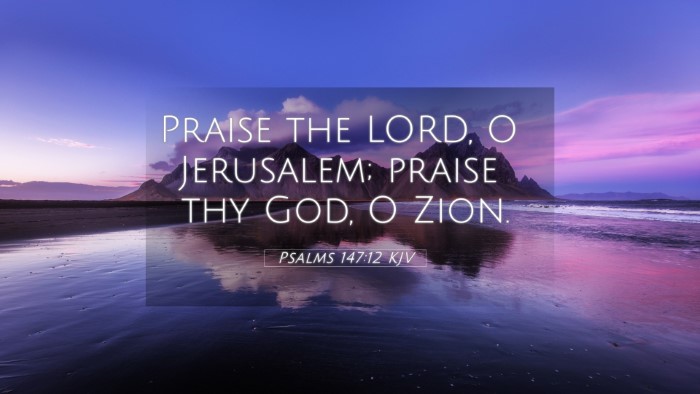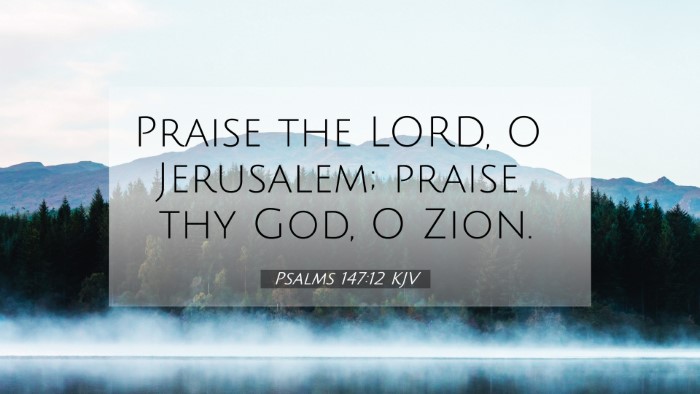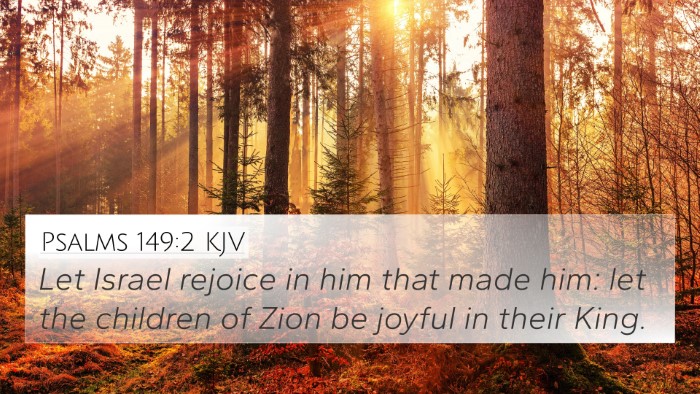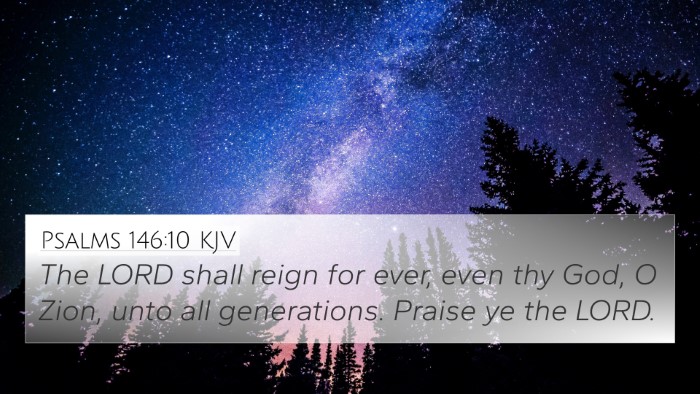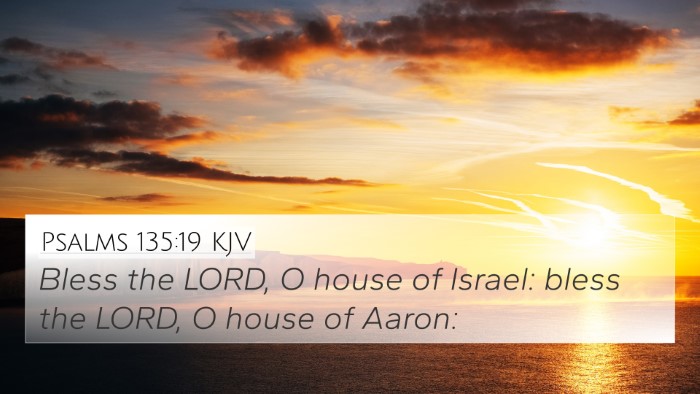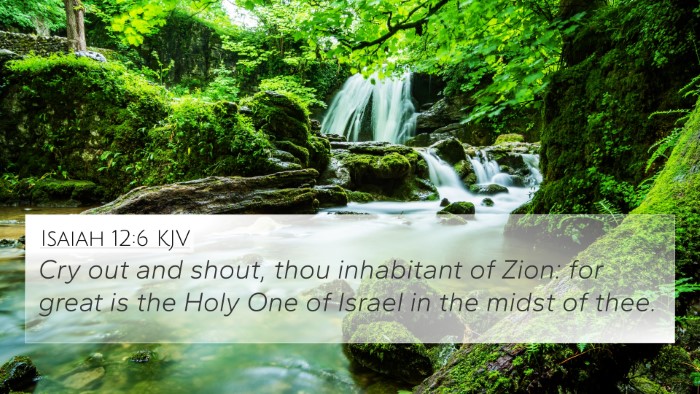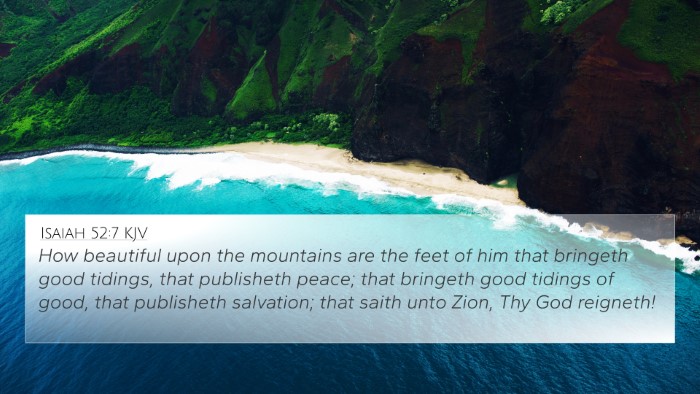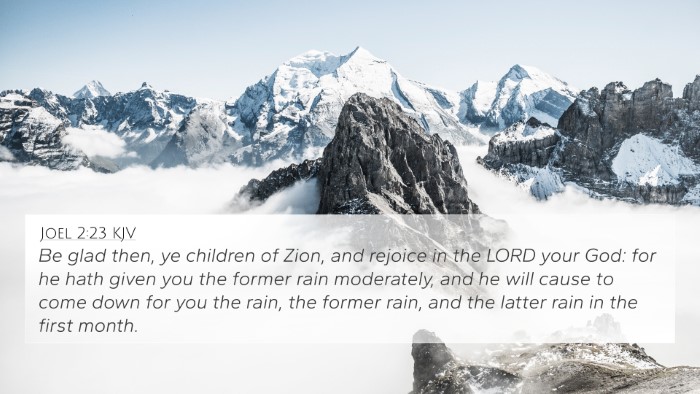Understanding Psalms 147:12
Psalms 147:12 states: "Praise the Lord, O Jerusalem! Praise your God, O Zion!" This verse serves as a call to worship, highlighting the relationship between God's people and their Creator. Through the lens of various commentaries, we can uncover deeper meanings and connections that enrich our understanding of this verse.
Insights from Public Domain Commentaries
- Matthew Henry: Henry emphasizes the importance of Jerusalem and Zion as symbols of God's chosen people. He explains that the call to praise is an acknowledgment of God's continual blessings, protection, and love for His people. Henry interprets this verse as a reminder that praise is both a duty and a privilege for believers, particularly those belonging to the covenant community of faith.
- Albert Barnes: Barnes delves into the historical context of the psalm, arguing that it reflects a time of restoration for Israel after exile. He posits that the verse not only calls for praise but serves as an assurance that God's presence resides within the city, encouraging the faithful to rejoice in their restored relationship with God. Barnes also highlights the significance of Jerusalem as the dwelling place of God’s glory.
- Adam Clarke: Clarke adds a theological layer by discussing the implications of praising God specifically within the realms of Jerusalem and Zion. He notes that the call to worship reflects both collective and individual responses to God's goodness. Clarke’s commentary indicates that the glorification of God in these revered places symbolizes a broader recognition of His sovereignty over all creation.
Cross-Referencing Biblical Texts
In examining Psalms 147:12, we can draw parallels and connections to several other Bible verses that resonate with its themes of praise, restoration, and God's faithfulness. Here are some relevant Bible cross-references:
- Psalm 146:1-2 - "Praise the Lord! Praise the Lord, my soul. I will praise the Lord all my life; I will sing praise to my God as long as I live."
- Isaiah 40:9 - "You who bring good tidings to Zion, go up on a high mountain. You who bring good tidings to Jerusalem, lift up your voice with a shout." This verse emphasizes the joy and proclamation of God’s goodness.
- Matthew 21:5 - "Say to Daughter Zion, 'See, your king comes to you, gentle and riding on a donkey, and on a colt, the foal of a donkey!'" This verse fulfills and connects to the idea of Jerusalem as a place of divine visitation.
- Hebrews 12:22 - "But you have come to Mount Zion, to the city of the living God, the heavenly Jerusalem." This New Testament reference reaffirms the spiritual significance of Zion.
- Psalm 126:1-3 - "When the Lord restored the fortunes of Zion, we were like those who dreamed. Our mouths were filled with laughter, our tongues with songs of joy." This reinforces the theme of restoration and joy in God's presence.
- Revelation 21:2 - "I saw the Holy City, the new Jerusalem, coming down out of heaven from God." This points to the eschatological hope associated with Zion.
- Psalm 48:1-2 - "Great is the Lord, and most worthy of praise, in the city of our God, his holy mountain, beautiful in its loftiness, the joy of the whole earth." This aligns with the celebratory call to worship in Psalms 147:12.
Thematic Connections and Analysis
Throughout the Bible, we observe strong connections between scriptures that speak of praise, worship, and God's faithfulness to His people. This psalm acts as a bridge linking various themes, such as:
- Praise and Worship: The repeated exhortation to praise God reflects a larger biblical theme where worship is an integral response to God’s character and actions (e.g., Psalm 150:6).
- Restoration: This theme runs through many Old Testament narratives, including the return from Babylonian exile (e.g., Ezra 1:1-4 and Nehemiah 2:17).
- Divine Presence: The presence of God in Jerusalem signifies His choice of this place as a dwelling among His people (e.g., Exodus 25:8).
Conclusion
Psalms 147:12 invites believers into a rich tradition of praise, deeply rooted in the community of God's people. By synthesizing insights from various public domain commentaries and exploring thematic connections, we gain a deeper appreciation for the significance of this exhortation to worship. This verse, along with its cross-references, calls us to recognize God's sovereignty, restoration, and everlasting faithfulness.
Reflective Questions:
- How does this verse inspire you to worship God in your daily life?
- In what ways can you reflect on the theme of restoration in your faith journey?
- How can you utilize cross-referencing tools to enrich your Bible study experience?
